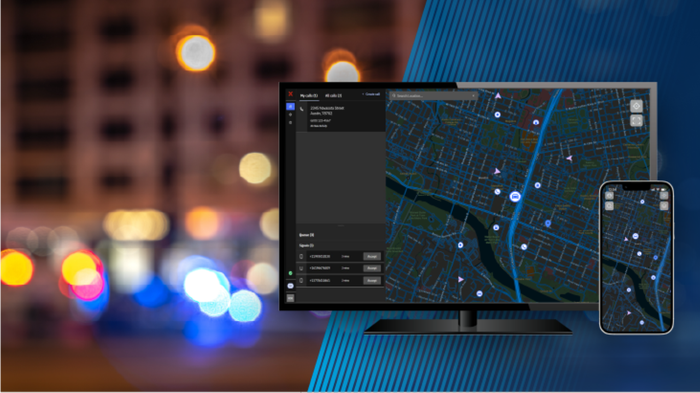Louisiana becomes 22nd state to make FirstNet ‘opt-in’ decisionLouisiana becomes 22nd state to make FirstNet ‘opt-in’ decision
Louisiana Gov. John Bel Edwards announces that he has accepted the nationwide public-safety broadband network (NPSBN) deployment plan offered by FirstNet and AT&T on behalf of his state, making Louisiana the 22nd state—not including two territories—to “opt-in” to the FirstNet system.
Louisiana Gov. John Bel Edwards yesterday announced that he has accepted the nationwide public-safety broadband network (NPSBN) deployment plan offered by FirstNet and AT&T on behalf of his state, making Louisiana the 22nd state—not including two territories—to “opt-in” to the FirstNet system.
“The entire state of Louisiana will benefit from this decision,” said Gov. Edwards said in a prepared statement. “From natural disasters like flooding and hurricanes to other planned events like Mardi Gras, hosting Super Bowls or other large sporting events, Louisiana has many unique times when communications systems can become strained. We will be working with our partners at FirstNet and AT&T on this communications network which means deploying a true interoperable nationwide system for public safety.
“The sharing of instant information will only become more critical in the future. There is a lot to be done, but the system will ultimately help protect our citizens and first responders.”
Under the law that established FirstNet, governors in all 56 states and territories have the choice of making an “opt-in” decision—accepting the FirstNet deployment plan and allowing AT&T to build the LTE radio access network (RAN) within the state’s borders at no cost to the state—or pursuing the “opt-out” alternative, which would require the state to be responsible for building and maintaining the RAN for the next 25 years.
AT&T will build the FirstNet RAN in “opt-in” states or territories at no cost to each jurisdiction, although local public-safety entities will be responsible for paying subscription costs and end-user device expenses. However, the law that established FirstNet stipulates that individual public-safety agencies and potential first-responder users are not required to subscribe to the FirstNet service.
“FirstNet is honored to serve Louisiana's public-safety community,” FirstNet CEO Mike Poth said in a prepared statement. “Gov. Edwards' decision will deliver modern communication technology to first responders throughout the Pelican State, making communities safer and secure. FirstNet will continue to work with the state to ensure the network delivers the coverage, services and innovation that public safety needs.”
FirstNet released its initial state plans on June 19 and made them actionable, so governors would have the opportunity to “opt-in” to FirstNet prior to the final state plans being released in September. Prior to Louisiana’s decision, 21 other states—Virginia, Wyoming, Arkansas, Kentucky, Iowa, New Jersey, West Virginia, New Mexico, Michigan, Maine, Montana, Arizona, Kansas, Nevada, Hawaii, Alaska, Tennessee, Nebraska, Maryland, Idaho and Texas—had announced their “opt-in” decisions, as did the U.S. Virgin Islands and Puerto Rico territories.
AT&T officials have stated that deployment of LTE on the 700 MHz Band 14 spectrum licensed to FirstNet could begin as early as this year in certain parts of the country. Public-safety agencies in “opt-in” states are eligible to sign FirstNet contracts that give first responders priority access across AT&T’s commercial networks immediately and preemptive access by the end of the year.
“Gov. Edwards' decision to opt-in to FirstNet opens the door for first responders in every city and parish in Louisiana to take advantage of the nation's only network purpose-built just for them,” Chris Sambar, senior vice president, AT&T–FirstNet, said in a prepared statement. “This is the platform for public safety, giving Louisiana's first responders the tools and technologies they need to communicate every day and in every emergency. And through our commitment with FirstNet, public safety can be confident that this network will deliver what they need today, tomorrow and 25 years from now.”





